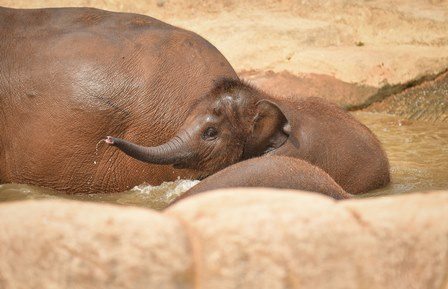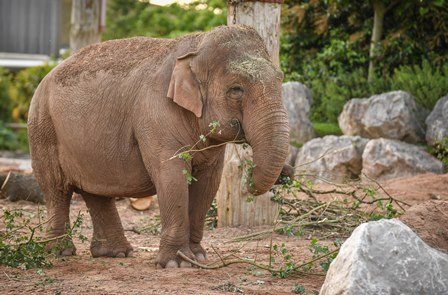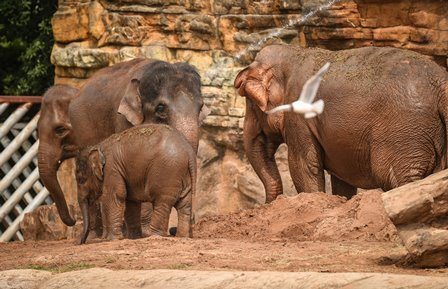Tag: Never Forget
Happy World Elephant Day! Today we’re celebrating all things to do with this amazing animal.
Chester Zoo not only works to protect Asian elephants in the wild through our Assam Haathi Project, but we’re also raising awareness and vital funds to carry out scientific research in the hope to find a solution to a deadly disease affecting young elephants.
Read more about our We Will Never Forget campaign here.

On top of this we’re also working in collaboration with academic partners, supervising PhD students with their research on a range of topics. One of our Chester Zoo conservation scholars, Rutendo Wazara, has been studying the social wellbeing of our herd of Asian elephants, below she tells us more:
“When people think about elephants, two things usually come to mind – their great memory and their strong family bonds. In the wild, both Asian and African elephants live in distinct social groups. Whilst the males leave their family herds when they reach puberty, female elephants will stay together in family groups for the length of their lives.
“Elephant family groups are made of mothers, calves, sisters, aunts and grandmothers; and because of this the females develop strong bonds with one another. Elephants are one of the few species that learn life skills from watching each other, making and having strong bonds with family members important. In these family groups, females help each other care for and protect their calves, learn how to become good mothers, develop good social skills and share food and water resources.

“Just like their cousins in the wild, elephants in zoos also make strong bonds with the elephants they are housed with. Elephants in zoos also rely on stable social groups to develop healthy behaviour, and so it is important that they are housed in multigenerational groups. However, the zoo environment poses a unique challenge because sometimes institutions are unable to house big family groups due to space restrictions, or elephants are housed with individuals to whom they are not related. And elephant social behaviour can be sensitive to these management practices – even if there are practices that improve their wellbeing. This is where my research comes in!
“The aim of my research is develop a tool that measures the strength of the bonds found between elephants. Knowing how strong the bond is between two elephants will help the zoo know which elephants spend the most time together; whether relatives or non-relatives share the strongest bonds; and how stable established bonds can be over a long period of time. My research will also explore the impact that social behaviour has on an elephants’ overall health including changes in hormone levels and reproductive health.
“Currently, I am working on determining if elephant bonds are stable over a twenty-four-hour period. The purpose of this is to determine if the data Chester Zoo’s elephant keeping team has been collecting for the past few years on the sleeping behaviour of the elephant herd can be used to measure the strength of the bonds between the elephants. So whilst the keepers have been studying which animals prefer sleeping together, I have been collecting data on which animals prefer to spend their days outside near each other.

“Our next step will be to calculate measurements for the elephants’ daytime bonds and night time bonds, and see if the values are different or equal. If the values are different, it means that elephants have partners they prefer to spend time with during the day, and partners they prefer to sleep with at night. But if the bond strengths are equal, it will mean that elephants will spend all their time – both day and night – with the same individuals. This result will be important because the keeping team observes the elephants’ night time behaviour in order to monitor the social dynamics of the herd, (read more about this work here) and so this part of my research will help keepers decide if collecting data only at night gives a full picture of the social bonds that exist in the herd.
“After we determine the relationship between the day time and night time social dynamics of the herd, I will continue to monitor the stability of the herd, but also look at how major life events affect the herd. My hope is that overall, the research I do with Chester Zoo will give the zoo a simple but practical way of monitoring the bonds within their elephant herd, which will help them create a suitable social environment where elephants can have healthy development.”
Discover more about this beautiful species and the work we’re doing to ensure its survival.

Donate to We Will Never Forget
Join the fight now and 100% of your money will support invaluable research and help us put a stop to this devastating virus.